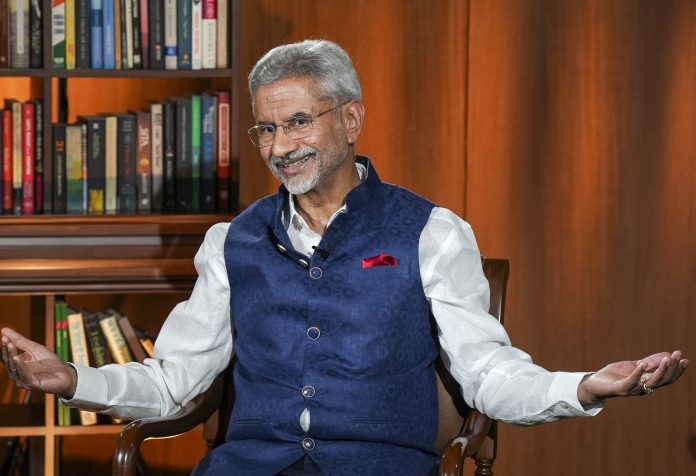New Delhi, May 11: If closing out the G20 Summit was the most satisfying moment of his career, the most significant was being associated with “enormous changes in some crucial relationships” such as the US, Australia, UAE and Japan during the last five years, Foreign Minister S Jaishankar says.
“These relationships have really changed tremendously in the last five years, last decade. And, the growth of the Quad, again that is something that we tried a decade and a half ago, not succeeded, did it a second time. This time it actually, really worked,” Jaishankar told PTI in an exclusive interview at the news agency’s headquarters.
Jaishankar spoke on a range of issues in the nearly hour-long interview including his view of the world in 10 years from now, the challenges faced by India, and the rising profile of the country in the international arena under his watch.
Hosting the G20 Summit last year “wasn’t just the hard work”, because in many ways the “prestige of the country” was riding on it, he said.
“I think the most satisfying moment was when we, actually closed out the G20 Summit, the joint declaration… It was a very difficult process. Till that morning, people, a lot of people actually thought we won’t be able to actually get everybody to agree on it. So, as a minister, I think, I would say that certainly would be one, which for me would be professionally very satisfying,” he said.
On September 9, Prime Minister Narendra Modi had announced the adoption of the New Delhi Leaders Declaration, a significant victory for India’s G20 presidency, which came amid increasing tensions and divergent views over the Ukraine conflict.
The announcement about the consensus on the declaration and its subsequent adoption came hours after India circulated a new text to the G20 countries to describe the Ukraine conflict.
“It was the biggest diplomatic responsibility we had taken up in our history. And, the manner in which we conducted it was also very unique. I have been in this business for a long time. I haven’t seen any foreign policy event with which the Indian public was so associated and vested in,” Jaishankar said.
India held the chair of the influential bloc for a year starting December 1, 2022 with the tagline of “Vasudhaiva Kutumbakam — ‘One Earth, One Family, One Future'” as it also sought to make its G20 agenda inclusive, ambitious, action-oriented, and decisive.
“We managed it at a very difficult time, and made sure that it actually came out of a very stressful period much stronger. Imagine if we had not. I think there was a lot riding on it, both for the country, obviously the government in office, but I would say for the world as well,” the minister said while answering a question on what was the most satisfying moment of his career.
After mentioning G20, Jaishankar said: “You didn’t ask me what was the most significant. In my tenure as a minister and (in that) period being associated with enormous changes in some very crucial relationships” has been the most significant. “The US, I would say, the UAE, Australia, to some extent even Japan.” Jaishankar, one of the most well-known foreign ministers with nearly 50 years of experience in diplomacy, has previously been an ambassador to China and the United States, and India’s Foreign Secretary.
He has been instrumental in rasing the profile of the foreign ministry, the work that the foreign ministry does, domestically.
Asked if he felt a sense of that recognition from the people, he said, “I certainly see a much stronger interest in the country in foreign policy”.
“In fact, I look at my own party manifesto, the space that BJP manifesto has devoted to foreign policy is much more than it has done before. But, I would say, it reflects two-three things, one it reflects the globalisation of India that actually there is a demand in the public, interest in the public, they are much more connected to what is happening in the world,” he said.
He said people also take great pride in the “position which Prime Minister Modi has carved out on the international stage. I think, the country takes great pride in it. I see, particularly, but not only, I see particularly young people, very very moved” by India’s growing international stature.
Trending Now
E-Paper


